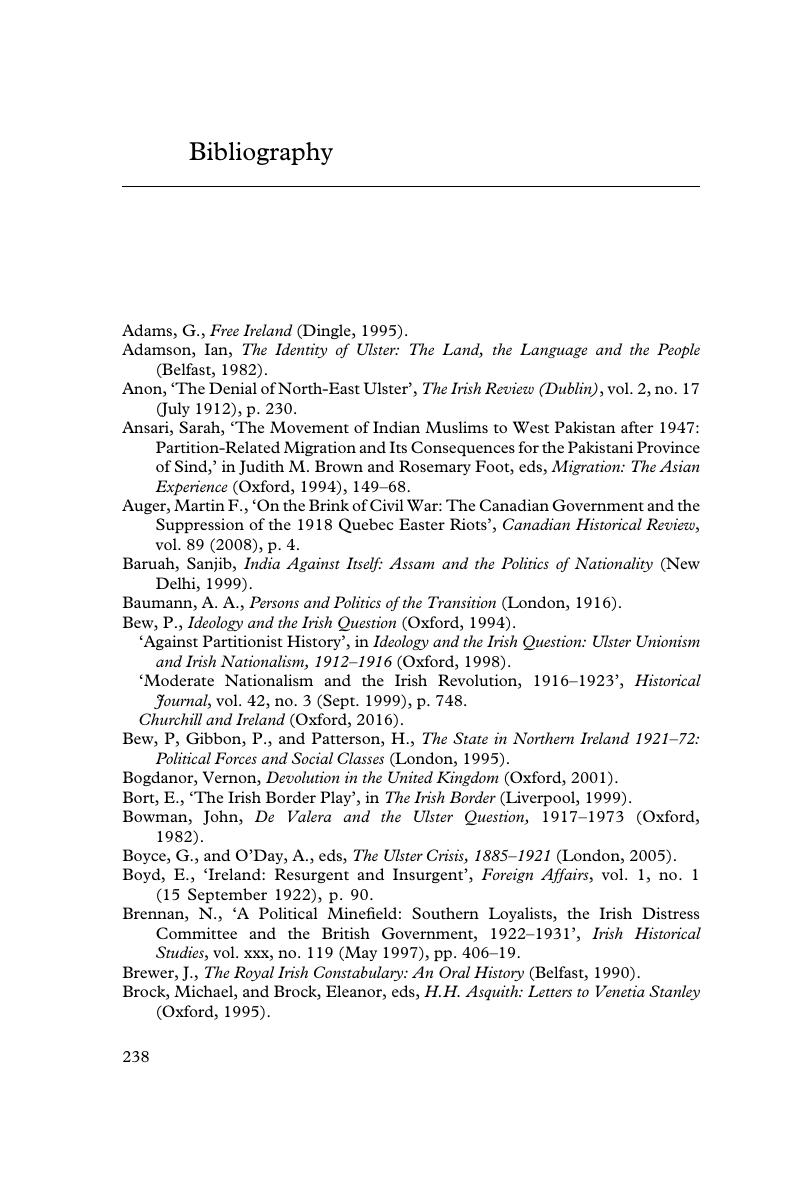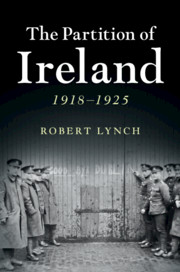Book contents
- The Partition of Ireland
- The Partition of Ireland 1918–1925
- Copyright page
- Dedication
- Contents
- Chronology
- Map
- Introduction: The Tragedy of Two Lunatics
- Part I The Origins of Partition
- Part II The Process of Partition
- Part III The Legacies of Partition
- Appendices The Government of Ireland Act (Extracts)
- Further Reading
- Bibliography
- Index
- References
- The Partition of Ireland
- The Partition of Ireland 1918–1925
- Copyright page
- Dedication
- Contents
- Chronology
- Map
- Introduction: The Tragedy of Two Lunatics
- Part I The Origins of Partition
- Part II The Process of Partition
- Part III The Legacies of Partition
- Appendices The Government of Ireland Act (Extracts)
- Further Reading
- Bibliography
- Index
- References
Summary

- Type
- Chapter
- Information
- The Partition of Ireland1918–1925, pp. 238 - 244Publisher: Cambridge University PressPrint publication year: 2019



